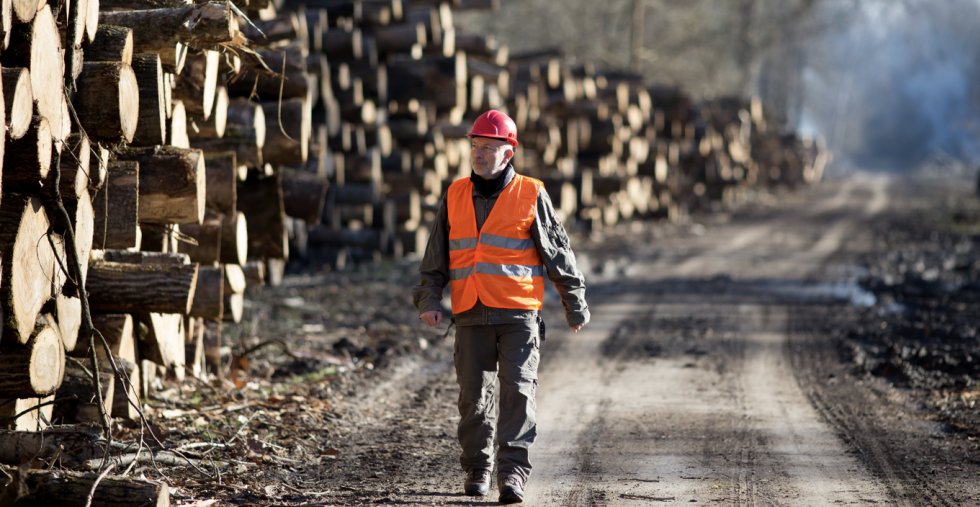
Fixing Canada's Transportation Supply Chains: Solutions for a Competitive Forest Sector
Dec. 19, 2025 - Canada’s forest sector is a vital part of the national economy, employing over 200,000 people and generating $87 billion in annual output. In 2024, it contributed $21 billion to GDP and exported $37 billion in products, making it the country’s fourth-largest export industry.
The sector’s success depends on efficient, reliable, and cost-effective transportation supply chains — primarily trucking, rail, and marine — to move products from remote mills to domestic and global markets. Recent years, especially following the COVID-19 pandemic, have exposed the fragility of these supply chains, with bottlenecks, crew shortages, limited investment, climate shocks, and frequent labour disruptions undermining Canada’s reputation as a reliable trading partner.
The brief identifies three core systemic challenges affecting supply chain performance:
1. Competition: Canada’s freight rail market is dominated by two carriers (CN and CPKC), leaving most forest sector shippers captive to a single railway. This lack of competition results in high rates, restrictive contracts, poor service, and limited recourse for shippers. Rate increases often outpace inflation without commensurate improvements in service or efficiency.
2. Infrastructure: Canada’s trade-enabling infrastructure—railways, highways, terminals, and ports—has not kept pace with demand or adapted to new challenges. Chronic congestion, aging assets, lack of redundancy, and climate shocks expose systemic fragility. Canada ranks last in the G7 for infrastructure and logistics performance, undermining market diversification and investment.
3. Labour Stability: Persistent work stoppages at railways and ports have affected supply chains in 14 of the last 15 years. The forest sector is especially vulnerable due to limited storage capacity and lack of alternative transportation options. Disputes can cost manufacturers millions per week and erode Canada’s reputation for reliability, risking permanent loss of offshore customers.
To date, policy and regulatory solutions to these issues have been insufficient to overcome the inertia of system failure and degradation. Should that trend continue, government will pass up a remarkable opportunity to rebuild and prime Canada’s economic engine by empowering value-generators like the forest sector to reach new and existing markets.
How the Federal Government Can Improve Freight Performance and Restore Trade Competitiveness
In alignment with Prime Minister Carney’s mandate to boost economic productivity, attract private investment, and diversify trade, FPAC recommends the following actions be undertaken:
Improving Competition
- Strengthen regulatory oversight: Amend the Canada Transportation Act to empower the Canadian Transportation Agency (CTA) to investigate unreasonable tariffs and rail service issues proactively.
- End restrictive contracting practices: Nullify contract language that limits shippers’ statutory remedies.
- Prohibit over-recovery of fuel costs: Ban fuel surcharges that exceed actual fuel costs and allow shippers to challenge these tariffs.
- Improve transparency and data: Require standardized reporting and analysis of railway performance.
Modernizing Infrastructure
- Encourage private investment: Use tax incentives and streamlined permitting for projects that improve supply chain efficiency and resilience.
- Apply a performance lens: Prioritize infrastructure projects that eliminate bottlenecks and improve system efficiency.
- Aggregate strategic investments: Support smaller investments to enhance first-mile/last-mile connectivity and system redundancy (e.g., data technologies, inland terminals, warehousing).
Enhancing Labour Stability
- Modernize dispute resolution: Adopt Industrial Inquiry Commission recommendations for special mediation and transparent, rapid processes for resolving transportation sector disputes.
- Empower Cabinet for quick intervention: Establish mechanisms for binding arbitration if negotiations fail.
- Balance productivity and employment: Develop strategies to facilitate productivity-enhancing investments while addressing worker concerns about automation.
Conclusion
Canada’s forest sector can drive sustainable economic growth, but this requires partnership with government to ensure world-class transportation links. By acting on these policy levers, federal leaders can deliver a robust transportation system that supports jobs, market diversification, and Canada’s global reputation.
FPAC provides a voice for Canada’s wood, pulp, and paper producers nationally and internationally in government, trade, and environmental affairs. As an industry with annual revenues exceeding $87.2B, Canada’s forest products sector is one of the country’s largest employers — providing 200,000 direct jobs and operating in hundreds of communities across the country.
SOURCE: Forest Products Association of Canada (FPAC) |